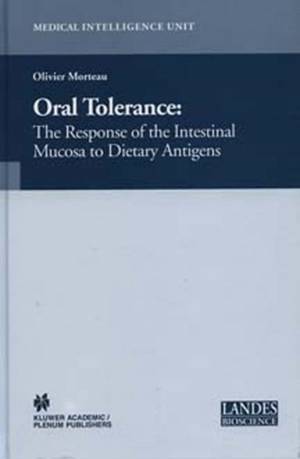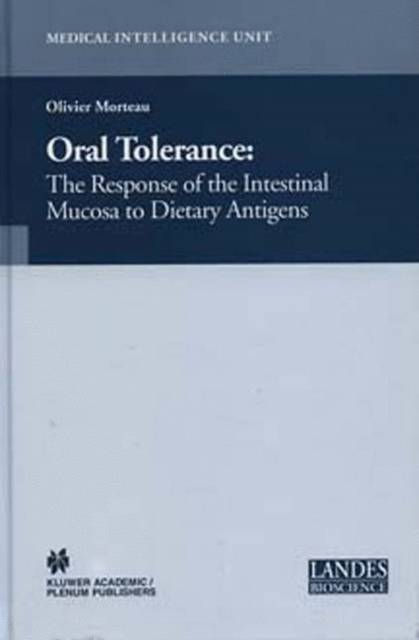
- Afhalen na 1 uur in een winkel met voorraad
- Gratis thuislevering in België vanaf € 30
- Ruim aanbod met 7 miljoen producten
- Afhalen na 1 uur in een winkel met voorraad
- Gratis thuislevering in België vanaf € 30
- Ruim aanbod met 7 miljoen producten
Zoeken
Oral Tolerance
Cellular and Molecular Basis, Clinical Aspects, and Therapeutic Potential
€ 251,45
+ 502 punten
Omschrijving
Oral tolerance is a major immunological property of the gastrointestinal mucosa. It plays a critical role in immune defence by preventing inflammatory and allergic responses to dietary and non pathogenic microbial antigens. The interest in oral tolerance has been renewed in the recent years, due to novel insights on its cellular mechanisms and potential clinical applications in the treatment of autoimmune diseases.
Oral Tolerance: Cellular and Molecular Basis, Clinical Aspects, and Therapeutic Potential, has been designed as a concise yet comprehensive overview of the newest fundamental and clinical advances in the field. Based on the outstanding contribution of world experts, this book will be helpful to students, clinicians, and researchers working in mucosal immunology and gastroenterology.
The first part of this volume describes the structure and functions of the gastrointestinal mucosa and the fundamental features and mechanisms of oral tolerance, including the role of T cells, cytokines, IgA antibodies, and bacterial antigens. The second part explores the clinical implications of the disruption of oral tolerance in Inflammatory Bowel Diseases, food and milk allergies, and coeliac disease in particular. The final chapter focuses on the clinical potential of oral tolerance as a promising therapeutic tool.
Oral Tolerance: Cellular and Molecular Basis, Clinical Aspects, and Therapeutic Potential, has been designed as a concise yet comprehensive overview of the newest fundamental and clinical advances in the field. Based on the outstanding contribution of world experts, this book will be helpful to students, clinicians, and researchers working in mucosal immunology and gastroenterology.
The first part of this volume describes the structure and functions of the gastrointestinal mucosa and the fundamental features and mechanisms of oral tolerance, including the role of T cells, cytokines, IgA antibodies, and bacterial antigens. The second part explores the clinical implications of the disruption of oral tolerance in Inflammatory Bowel Diseases, food and milk allergies, and coeliac disease in particular. The final chapter focuses on the clinical potential of oral tolerance as a promising therapeutic tool.
Specificaties
Betrokkenen
- Uitgeverij:
Inhoud
- Aantal bladzijden:
- 208
- Taal:
- Engels
- Reeks:
Eigenschappen
- Productcode (EAN):
- 9780306479892
- Verschijningsdatum:
- 10/08/2004
- Uitvoering:
- Hardcover
- Formaat:
- Genaaid
- Afmetingen:
- 158 mm x 236 mm
- Gewicht:
- 521 g

Alleen bij Standaard Boekhandel
+ 502 punten op je klantenkaart van Standaard Boekhandel
Beoordelingen
We publiceren alleen reviews die voldoen aan de voorwaarden voor reviews. Bekijk onze voorwaarden voor reviews.










